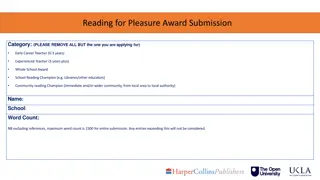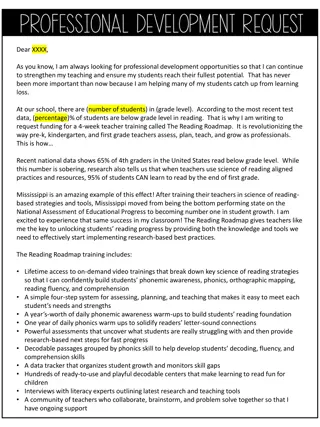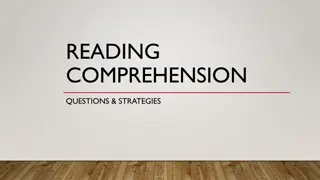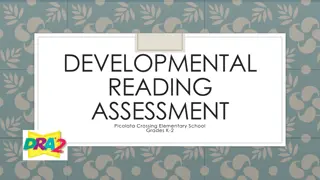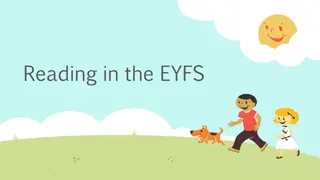
Challenges Faced by Young People in the Smartphone Era
Today's young generation heavily relies on apps for convenience and instant gratification, leading to concerns about their ability to think critically and creatively. Additionally, the link between unhealthy lifestyle choices and the development of cancer is explored, with a unique perspective on the role of cancer cells in the body as a response to toxic materials. The historical significance of philosophers advising rulers is also highlighted, showcasing instances where advisors faced persecution for differing viewpoints.
Uploaded on | 0 Views
Download Presentation

Please find below an Image/Link to download the presentation.
The content on the website is provided AS IS for your information and personal use only. It may not be sold, licensed, or shared on other websites without obtaining consent from the author. If you encounter any issues during the download, it is possible that the publisher has removed the file from their server.
You are allowed to download the files provided on this website for personal or commercial use, subject to the condition that they are used lawfully. All files are the property of their respective owners.
The content on the website is provided AS IS for your information and personal use only. It may not be sold, licensed, or shared on other websites without obtaining consent from the author.
E N D
Presentation Transcript
01 app/ p.12 Reader s Bank Level 9 Today s young people belong to the so-called app generation that depends on apps for almost everything. If they want to find a place, they use Google Maps. If they want to find a friend, they go on Instagram or Facebook. However, young people s increasing dependency on apps is causing many problems. First of all, ____________________________. Being accustomed to using apps that give them prompt results, they expect every aspect of life to be quick and readily available. And that s not all. When they are faced with problems, they don t bother to come up with new ideas, either. Why? For them, it s easier to just use Google to look them up. Educators are worried that young people s addiction to app technology may limit their potential, turning them into zombie-like individuals who can t think for themselves. the excessive use of apps
02 ?_1 / p.14 Reader s Bank Level 9 Why do we develop cancer? According to Andrea Moritz, a German medical expert, cancer is caused by unhealthy lifestyle such as eating acidic or junk food too much and not exercising regularly. ( ) If we continue with this kind of lifestyle, toxic materials will build up in the body tissues, and eventually block the blood flow in the body. ( ) In this case, some tissues in the body will not be able to receive oxygen and nutrients. What happens if oxygen is not supplied? ( ) The affected parts will start to rot because normal body cells cannot survive without oxygen. ( ) As a defense mechanism, our normal body cells will transform themselves in order to adapt to living without oxygen. ( ) These new cells are none other than cancer cells.
02 ?_2 / p.14 Reader s Bank Level 9 Then, what do cancer cells do? They use the toxic materials to create the energy needed to keep the body tissues from rotting. This way, the cells protect our damaged body parts where oxygen and nutrients are not available . So, contrary to our common beliefs, cancer is like a first-aider who comes to rescue us in an emergency. If we start to consume healthier food and exercise more often, our body tissues will be free of toxic materials. This will provide a better blood flow and proper supply of oxygen and nutrients. Then, cancer cells will no longer need to exist. This is where cancer comes to our rescue.
03 _1 / p.16 Reader s Bank Level 9 Throughout world history, rulers always had great philosophers by their side to give them advice. But they sometimes persecuted or even executed these advisors when they didn t agree with their ruling policies. In Europe, for instance, the Roman Emperor Nero was taught by philosopher Seneca. Nero was a cruel tyrant and forced Seneca (A) to commit / committing suicide when his teachings became an obstacle to his rule. King Henry VIII of England was often given advice by philosopher Sir Thomas More. But when More refused to approve Henry VIII s divorce and remarriage, he was executed by the king s order. In China, there was a great philosopher (B) naming / named Confucius. He spent his whole life developing and (C) taught / teaching the proper way to govern
03 _2 / p.16 Reader s Bank Level 9 a state. Chinese rulers would often seek advice from him. However, Confucius never found a ruler who would accept him as an advisor and put his teaching into practice. This frustrated him very much. Considering what happened to European philosophers, however, Confucius was __________________________ .
04 _1 / p.18 Reader s Bank Level 9 Did you know that about 2,000 graduates of Eton College, an elite British school, were killed in the service of their country in World War II? Or that 142 sons of high-ranking American officials joined the Korean War, and about one fourth of them lost their lives or got injured? Their sacrificial behavior was a great example of noblesse oblige. Noblesse oblige has its roots in feudal Europe, where it referred to a sense of obligation that the nobility had toward the workers. The working class did not own land in its own name. Workers had to hand most of their crops over to the nobility. The nobility, in return, was expected to provide them with land to farm. The nobility was also responsible for protecting their workers from thieves and invaders.
04 _2 / p.18 Reader s Bank Level 9 The celebrations such as spring and harvest festivals. These expectations were understood rather than stated outright in the documents. These ______________________ became known as noblesse oblige. Today, we express this idea by stating that to whom much is given, much is expected. members of the nobility even gave workers occasional


